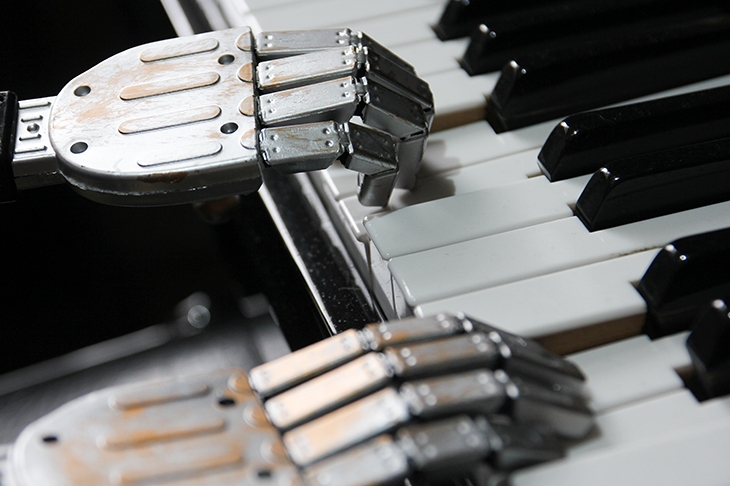What is creativity? Marcus du Sautoy, a mathematician and Oxford professor for the public understanding of science, offers this pert definition in his introduction: ‘Creativity is the drive to come up with something that is new and surprising and that has value.’ This, he argues, is possible in mathematics (he himself invented a new kind of symmetrical object) as well as the arts in general, or what he describes as ‘the outpourings of what I call the human code’. The question he sets himself in this book is: can Artificial Intelligence do as well, or even better?
Du Sautoy’s use of the phrase ‘the human code’ for the software that is allegedly running in our heads makes the comparison more flattering to computers: after all, if one kind of code can write novels, why not another? Maybe, indeed, there is even a ‘creativity code’, as the title calls it, that, once cracked, could enable any human or machine entity to become a genius. There is, of course, a large business appetite for books that explain creativity, which has not been best served since Jonah Lehrer’s notorious Imagine: How Creativity Works, which was withdrawn from sale after it was discovered to have made up quotes by Bob Dylan.
Spoiler: there is actually no creativity code, and AI can’t yet perform artistic feats that are plausibly human. The interest of this book is really the journey, as our author travels around various labs to be shown the state-of-the-art in machine learning. Whereas programmers used to try to tell a computer everything it ought to do, the current art is to make a program that can learn as it goes along. So it was with AlphaGo, the Go-playing program that beat the board game’s human world champion a few years ago, having learned by playing millions of training games against itself.
At the end of his fascinating chapter on that match, though, Du Sautoy offers an unnecessarily downbeat conclusion. ‘It feels almost pointless to want to aspire to be the world champion at Go when you know there is a machine that you will never be able to beat,’ he writes. But that hasn’t been the case with chess, where machines have been unbeatable for more than a decade, yet people still want very much to dethrone the human champion Magnus Carlsen. For that matter, it’s easy to build a wheeled robot that can go faster than a sprinting human, but Usain Bolt was still a phenomenon.
The rest of the book is an illuminating compendium of computer-related subjects, including how search engines and online-dating algorithms work, how a computer analysed the works of Rembrandt and produced a ‘new’ one, and how visual recognition systems can be encouraged to produce hallucinatory artworks.
Before computers ever existed, of course, artists had often themselves used some kind of algorithmic procedure — whether throwing dice or inventing arcane rules — to get them going. And these days in videogames, to spare programmers the arduous task of designing several million different alien planets by hand, algorithms can be employed to generate them automatically. So, in du Sautoy’s measured conclusion, AI will, for the foreseeable future, remain a potential helpmeet or amanuensis. Which is not to say that people won’t try their damnedest to use it to cut costs by firing people — which is, after all, one of the primary business meanings of the word ‘creativity’ itself.
Slightly different is the argument that some art itself amounts to little more than mathematical manipulation — a common charge against the music of J.S. Bach, but one made only by people ignorant of the extent to which Bach would joyously break all the ‘rules’ for the sake of beauty of line. Du Sautoy surveys the best that computer-generated music has to offer, and is unimpressed: ‘Sure they can churn out muzak, but not quality music.’ Similarly, a computer program that can generate mathematical theorems is ‘like a mindless machine cranking out mathematical muzak’. And AIs that write fiction produce stylistic pastiche with no global narrative.
Maybe, after all, the robots of the future simply won’t be interested in telling us, or each other, stories. In the meantime, du Sautoy emphasises, ‘all the creativity in machines is being initiated and driven by the human code’, instantiated in a bogglingly complex embodied mind that we at present haven’t the faintest clue how to go about even beginning to recreate, except through sex.
By the end of this elegantly conceived book, du Sautoy has subtly but fatally pricked the giant PR bubble of tech ‘AI’, while at the same time composing an inspirational hymn to the power of man and machine working in harmony.






Comments